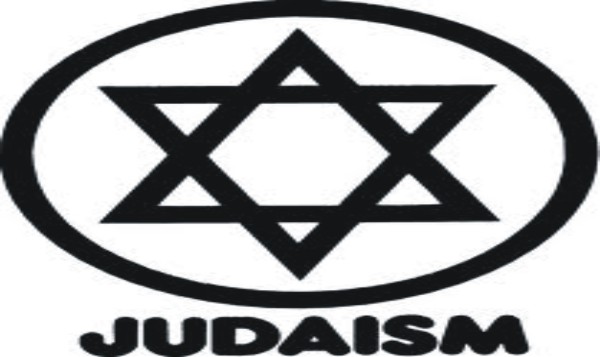By Robert Mbeyi
In this week’s discourse, the national leader of Jewish Faith inNigeria, Paquada (Bishop) E.S.Uba appraises critically from the Judaism perspective, some of the most recycled beliefs and practices in the Christiandom. Bishop Uba further explains that the New Testament, the brain child of the Greeks in whose language it was originally written doctored and modified several episodes and events out of their original context thereby rendering it vulnerable to scriptural disputation.
The biblical bastard
The word bastard denotes the outcome of sexual relationship which is abominable and rehensive before Elohim, God. In this regard, Levit 18:6 warned mankind: None of you shall approach to any that is near of kin to him to uncover their nakedness, I am the Lord” the Book (Leviticus) enumerates an endless list of such taboos which include; The uncovering of the nakedness of one’s father or mother; father’s mother; father’s wife; sister; daughter of one’s father or mother; son’s daughter and daughters daughter.
Others are father’s wife daughter; father’s sister; mother’s sister; brother’s wife; neighbour’s wife; women under menstruation lying with mankind as with womankind as well as any beasts to defile oneself.
There is also the overt case of Lot and his two daughters Genesis 19:33 -36 – paraphrased that night they got their father to drink wine and the elder daughter went in and lay with him. He was not aware of it when she lay down or when she got up—So, both ofLot’s daughters became pregnant by their father. Biblically, children born through such illicit relationships are bastards. In Igbo custom, one sleeping with a blood relation or animals is an abomination and this is tagged NWA ARU or ARU.
The word bastard has nothing to do with a girl impregnated in her father’s residence. In the case of a child born out of wedlock, the mother knows who impregnated her which means that after all, the child has a father and therefore not a bastard.
In Deut 23:2, mankind was reminded that “a bastard shall not enter into the congregation of the Lord even to his tenth generations”.
Wearing of Cap in places of worship
I am aware that in the christiandom, Bishops up to Pope put on caps while others except the monsignor do not. In the bible,Saint Paulwas the only apostle who laboured to explain the disparity. He must have been confronted by the early converts on the practice as only Jews in those days put on skull caps. The custom has a scriptural background as every Jew is a priest because they keep and obey the covenant unlike other races. Exd 9:16 “And ye shall be unto me, a kingdom of priests”.
Even then,Saint Paul’s clarification ran into a labyrinth, a dead end. His ambivalence created more confusion than clarity. 1Corinth11:3, 4,5and 7 are contradicted by verses 11 and 12. The explanation however became vital because in those biblical days, priests dress alike unlike these days their attires differ substantially. This was why Judas Iscariot had to take pains to identify “master” (Jesus) among the disciples who dressed alike.
To us in Judaism, the covering of the head according to the Scriptures is one of the Ordinances the Most High, Elohim gave to his people Exod 16:5, 6 “If you will indeed obey my voice and keep my covenant, then ye shall be a peculiar treasure unto me above all people for all the earth is mine. And ye shall be unto me a kingdom of priests”.
Skull cap in Hebrew is worn always especially during prayers and worship. Every male uses skull cap while women put on veil. It is not only the Jews who cover their heads, Moslems and Christians do so too.
Within Christian churches, bishops, archbishops and cardinals conduct religious business with their heads covered while Moslems cover their heads in and outside prayer grounds. According to Jewish Talmud, the covering of the hair depicts humility. Conversely, Jewish tradition regards bare headedness as a form of nakedness and nakedness is considered as a form of pagan indecency and paramountly improper for everyday life just as the high priest in biblical and temple days wore mitres on their heads when performing religious acts. The Talmud observes that the sages did not walk more than four steps with their heads uncovered. Since Talmud days, the Jews have kept their heads covered.
Messiah
The word Messiah is not saviour as erroneously believed and propagated in the Christendom but anointed one. Who then is a Messiah? is an English rendering of the Hebrew word, Messiah which means “anointed”. It usually refers to a person initiated into God’s service by being anointed with oil. Exod 29:7; I Kings 1: 39; II Kings 9: 37. Since every king and high priest was anointed with oil, each may be referred to as an anointed one, a Mashiach or Massiak.
For instance, God forbid that David should stretch his hand against the Lord Messiah (Saul) I Sam 26:11; II Sam 23; 1; Isaiah 45; Psalms 20:6.
Where does the Jewish concept of Messiah come from? One of the central themes of biblical prophecy is the promise of a future age of perfection characterized by universal peace and recognition of Elohim, Isaiah 2:1-4; Zaph 3:9; Hosea 2:20-22; Amos 9:13-15; Isaiah 32:15-18; 60:15-18; Micah 4:1-4; Zech 8:23; 14-9; Jer 31:33-34.
Many of these prophetic passages hinted of a descendant of King David who will rule Israel during the age of perfection Isaiah 11;1-9;Jer 23:5-6; 30:7-10; 33:14-16; Ezek 34:11-31; 37:21-28; Hosea 3:4-5.
Who then is a Saviour (To be continued)






